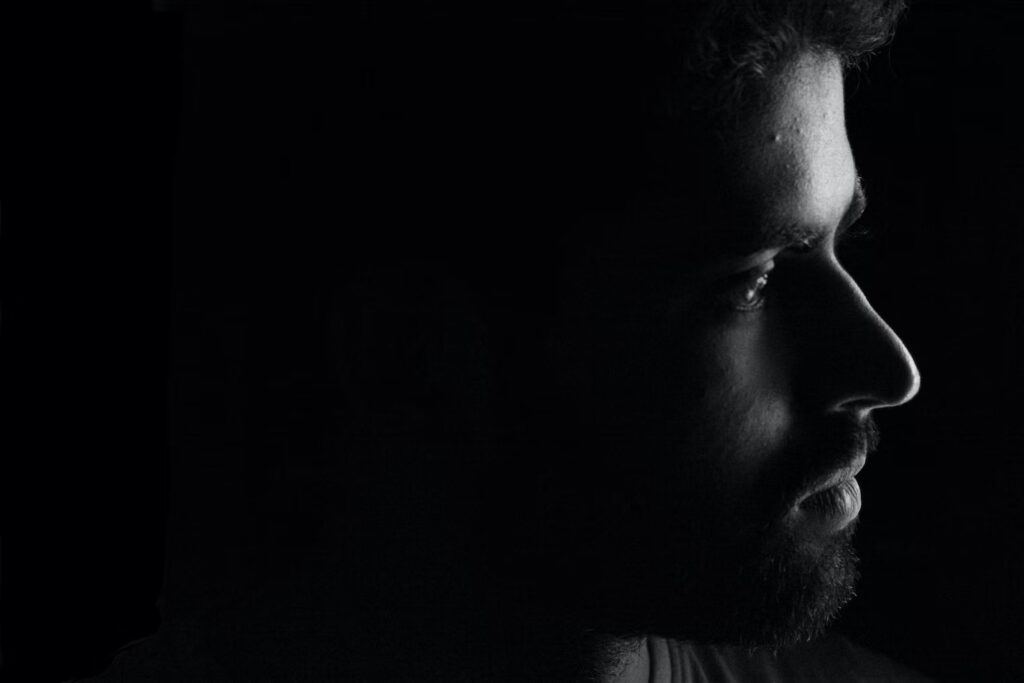Anyone can have an eating disorder. While conversations about eating disorders tend to focus on the significant social pressures women face regarding body image concerns and food, it is important to understand that men and male-identifying individuals also may be impacted by eating disorders. Did you know that men account for roughly 25% of eating disorder diagnoses? Unfortunately, many men live with undiagnosed eating disorders or struggle to find treatment due to a lack of acknowledgement that they, too, can experience disordered eating. This article will help you better understand what an eating disorder might look like in male-identifying individuals and provide resources for a road to recovery.
How do eating disorders present in men?
Cultural and clinical understanding of eating disorders has been shaped by the stereotype that eating disorders only affect women. While eating disorders do impact a significant amount of women and female-identifying individuals, it is important to discuss eating disorders among men and male-identifying individuals. Eating disorders can sometimes be characterized by a drive for thinness or weight loss. However, this does not always hold true for men with eating disorders. The idealized masculine body typically trends toward bulkiness and muscularity. Men experiencing body image issues and eating disorders often use supplements, steroids, and binge-eating to increase their bulkiness. It is also common to use purging and fasting to increase muscularity. Muscle dysmorphia, a type of body dysmorphic disorder (BDD) in which an individual fixates on body muscularity, is a more recently recognized condition in men. Those who suffer from muscle dysmorphia may spend excessive time and focus on developing an idealized male body type.
Males experiencing eating disorders may also experience other mental health problems, such as anxiety or depression. Excessive exercise, ritualized eating habits, and substance abuse may also be signs that a man is experiencing an eating disorder.
Here are some other signs and symptoms that men and male-identifying individuals may present when experiencing an eating disorder:
- Fixation on food, calories, or eating
- Fixation on body weight and size
- Distorted body image
- Stringent eating habits
- Low self-esteem
- Frequent dieting
This is not an exhaustive list of signs and symptoms. Sometimes it can be hard to tell if someone is experiencing an eating disorder, especially if they do not fit the archaic stereotypes of disordered eating, as is often the case for men. It is essential to seek support and treatment if you or a loved one experiences these symptoms.
Who is at risk of an eating disorder?
Eating disorders can affect anyone regardless of gender, health history, sexual orientation, or cultural background. For men, there is an increased risk of eating disorders among athletes, people of color, and the LQBTQ+ community. For men who partake in competitive athletic environments, the pressure to perform with a particular physicality or develop a specific body type may increase the risk of developing an eating disorder. People of color often face social stigma in healthcare environments, especially as it relates to eating disorders. This further complicates the diagnosis and treatment of eating disorders in this demographic. Men and male-identifying individuals in the LGBTQ+ community can face challenges regarding gender dysphoria and body dysmorphia, which can lead to the development of an eating disorder. Though these demographics have elevated risk factors, it is important to remember that anyone can develop an eating disorder.
Social factors can also play a role in the development of eating disorders in men and male-identifying individuals. Other risk factors may include experiencing bullying around weight; intense social pressure regarding strength, muscularity, or body size; and increased exposure to social media or advertising. Unrealistic and unattainable body types are frequently and increasingly used in various media, which has led to an uptick in eating disorders reported by young men and teen boys.
What kind of eating disorders can men have?
Eating disorder diagnoses do not discriminate, and can affect individuals of all genders. Common eating disorders may include:
- Anorexia nervosa: this disorder causes an obsessive fear of gaining weight. Signs of anorexia nervosa include restrictive eating behaviors, bingeing and purging, and a fear of gaining weight. Ten to twenty percent of anorexia nervosa cases are found in men.
- Bulimia nervosa: bulimia nervosa is characterized by cycles of bingeing and purging. Men who are athletes are two to three times more likely to develop bulimia nervosa than non-athletes.
- Binge eating disorder: those experiencing binge eating disorder (BED) have recurring episodes of binge eating. Common signs of this disorder are a sense of lack of control, secretive eating habits, and restriction. Nearly 1% of men have binge eating disorder.
- Orthorexia nervosa: while it is not an “official” diagnosis, this disorder is defined by obsession over “healthy” or “clean” eating. Frequent dieting, fixation on calories, and exclusion of entire food categories are common signs. Studies have found that 41% of male athletes showed signs of orthorexia.
Eating disorders are serious conditions that require a multidisciplinary treatment team. If left untreated, eating disorders can lead to medical complications and psychological health impacts.
What are the health effects of eating disorders in men?
Eating disorders, regardless of type or severity, can lead to significant health problems in men. Medical complications may include gastrointestinal issues, heart problems, and organ dysfunction. Men experiencing eating disorders may also have difficulty regulating their body temperature, general fatigue, dizziness or fainting spells, decreased immunity, and altered sex drive.
Many men and male-identifying individuals experiencing eating disorders also suffer from psychological health impacts as well. These can include self-harm, substance misuse and addiction, unstable mood, depression, and anxiety.
It is important to understand the signs and symptoms of an eating disorder and seek treatment from a medical professional.
What does treatment look like for men with eating disorders?
Oftentimes it can be challenging for men to find eating disorder treatment. Many facilities and inpatient programs do not have treatment options for men. Nevertheless, there are increasing treatment options for men and male-identifying individuals. Many outpatient programs are available to individuals of all genders who are experiencing an eating disorder. For outpatient programs, patients usually live at their own homes and have regular appointments with their healthcare providers. Other treatment options may include:
- Intensive outpatient program (IOP): this treatment occurs in a specialized center where individuals go to programming several times a week for individual and group therapies.
- Residential treatment: for individuals who are medically stable but require round-the-clock care and supervision.
- Inpatient treatment: this treatment is for those who require a more intensive treatment plan. Inpatient care can include 24-hour care in a medical or psychiatric facility.
Each of these treatment options use various therapeutic approaches to help the patient work toward recovery. Methods such as cognitive behavioral therapy (CBT), family-based treatment (FBT), and dialectical behavior therapy (DBT) can all be utilized to aid in eating disorder recovery.
Seek Help
If you or a loved one is experiencing an eating disorder, you are not alone. Recovery is possible and help is available with the National Alliance for Eating Disorders.


